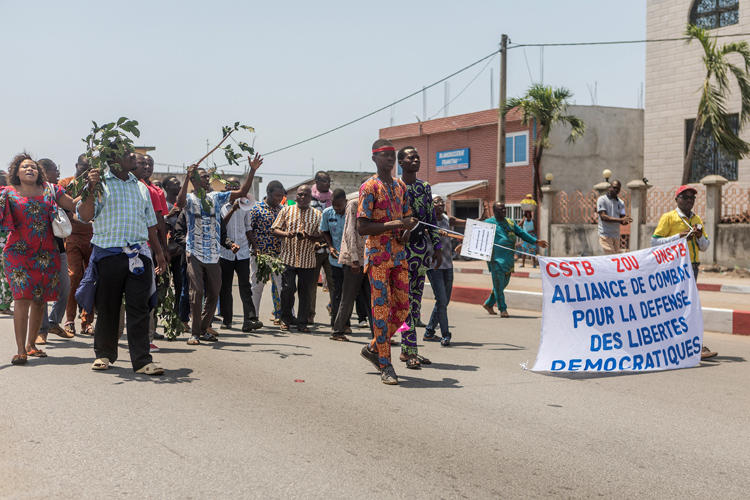New York, August 23, 2019–The government of Benin should act to decriminalize press offenses, the Committee to Protect Journalists said today, after journalist Ignace Sossou was convicted of false news for reporting on corporate finances.
A court in Benin’s largest city, Cotonou, on August 12 handed Sossou, a reporter with the privately owned Benin Web TV news website, a suspended sentence of one month imprisonment and a fine of 500,000 CFA francs (US$850) for alleged “publication of false information by electronic networks” under article 550 of Benin’s digital code, according to Sossou, who spoke to CPJ over the phone, a report published by Benin Web TV, and a written summary of the case by Sossou’s lawyer, Benaventure Essou. Sossou said the conviction and sentencing resulted from a complaint launched in April by businessman Jean Luc Tchifteyan, general manager of the Tchifteyan Group, who was named in two Benin Web TV articles about alleged tax evasion by his companies.
Sossou told CPJ on August 14 that he is appealing the conviction, but that a court date had not been set.
“Ignace Sossou should have never been charged nor convicted of a criminal offense for his reporting on the finances and taxation of corporations operating in Benin,” said Angela Quintal, CPJ’s Africa program coordinator. “We call on authorities not to oppose Sossou’s appeal, and urge the government of Benin to act swiftly to align their laws with international standards for press freedom by removing the possibility for journalists to be imprisoned for claims of false news or other press offenses.”
According to Sossou, the two articles in question discussed the finances of two companies owned by the Tchifteyan Group, the first of which was published in May 2018 on the Erévan Bénin company and was part of a series of investigative reports known as the West Africa Leaks and coordinated with the International Consortium of Investigative Journalists and the Cell Norbert Zongo for Investigative Journalism. The second article, published in February 2019, followed up on Benin Web TV’s West Africa Leaks report and focused on another of the Tchifteyan Group’s companies, Société béninoise de peintures et de colorants (Sobépec). Sossou told CPJ that in April, Benin police summoned and interrogated him about the veracity of the two reports.
CPJ’s calls to Tchifteyan went unanswered.
Benin’s digital code governs electronic communications networks and services, electronic tools, the digital economy, and personal data protection, as well as cybercrime and cybersecurity. Article 550 of the digital code includes, among other offenses, jail time for “anyone who has harassed an individual by electronic communication while knowing or must know that he would seriously affect the tranquility of the person concerned.”
In April, Casimir Kpedjo, editor of the privately owned daily Nouvelle Economie, was detained for five days and accused of violating Article 550 of Benin’s digital code by allegedly spreading false information about Benin’s economy on social networks, as documented by CPJ.
